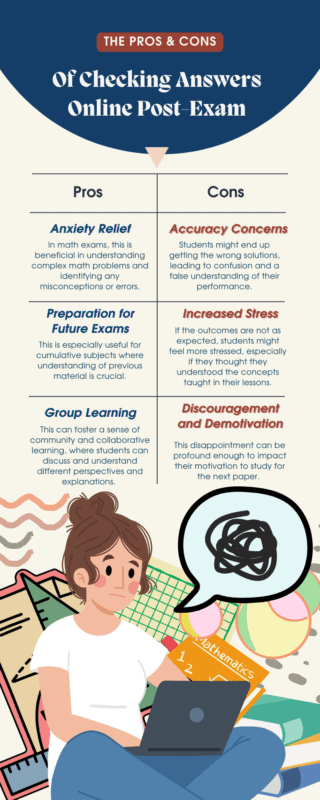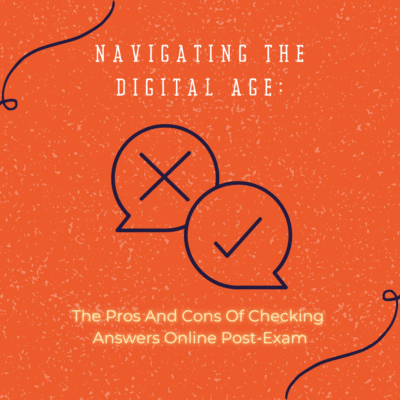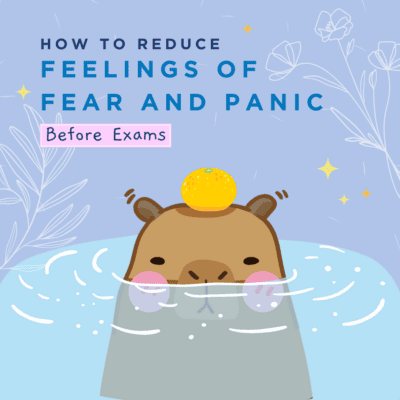In our modern digital era, the internet has become a pivotal aspect of our daily lives, influencing how we communicate, work, and learn. This digital revolution has particularly transformed the educational sphere, significantly impacting how students approach their studies. One notable trend among students is the practice of checking answers online immediately after finishing an exam.
The practice of looking up answers online soon after completing an exam is more than just a mere trend; it reflects a change in learning behaviours and the way they seek information. They want to know immediately how well they did. As we delve into this topic, we’ll look at the pros, like getting quick feedback and easing anxiety, and the cons, such as the accuracy of information and potential stress increase. Understanding these factors is key to grasping how the digital age is reshaping student behaviour and learning.
Pros of Checking Answers Online
- Anxiety Relief: For many students, the period after an exam can be filled with anxiety and uncertainty. Checking answers can provide a sense of relief and closure, helping them to move on from the exam mentally. In math exams, this is beneficial in understanding complex math concepts/problems and identifying any misconceptions or errors. Checking answers online can reinforce their learning or highlight areas needing more attention.
- Preparation for Future Exams: Knowing where they went wrong helps students to prepare better for future exams. This is especially useful for cumulative subjects where understanding of previous material is crucial.
- Group Learning: Often, students discuss and check answers in groups. This can foster a sense of community and collaborative learning, where students can discuss and understand different perspectives and explanations. When students find their answers align with online solutions, it also boosts their confidence in learning.
Cons of Checking Answers Online
- Accuracy Concerns: Online answers are not always reliable. Students might end up getting the wrong solutions, leading to confusion and a false understanding of their performance.
- Increased Stress: While some find relief in checking answers, it can also increase stress and anxiety for others. If the outcomes are not as expected, students might feel more stressed, especially if they thought they understood the concepts taught in their lessons.
- Discouragement and Demotivation: When students find that their answers don’t match the online solutions, it can be disheartening. This disappointment can be profound enough to impact their motivation to study for the next paper. They might doubt their abilities or the effectiveness of their learning methods, which could lead to a reluctance or inability to focus on upcoming subjects.
As we come to the end of our exploration of the pros and cons of checking answers online after exams, it’s clear that this practice, born in the digital age, is a double-edged sword. The key takeaway here is balance.
For students, the digital world is an invaluable resource, but it should be navigated with a critical eye and an understanding of its limitations. In the end, the goal of education, particularly in subjects as foundational as math, is not just about getting the right answers but about developing a mindset geared towards lifelong learning. As students continue to navigate their educational journeys, blending traditional learning methods with the advantages of the digital age can lead to a more robust and fulfilling academic experience!

This article serves solely as advice and should not be considered a replacement for professional guidance. While these suggestions can be beneficial for many, individual experiences and needs may vary. If you or someone you know is struggling with severe anxiety or other mental health issues, it’s crucial to seek help from professional therapists or counsellors. They can provide specialized assistance tailored to individual needs.





